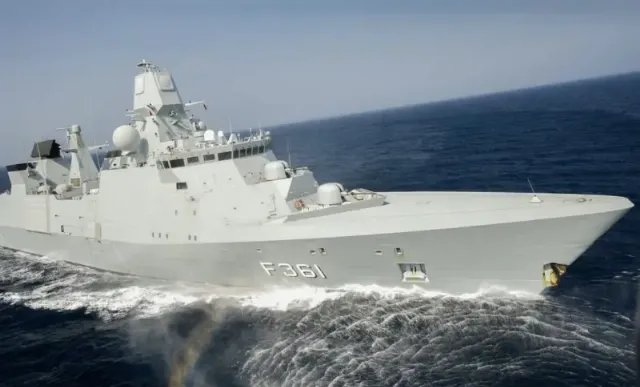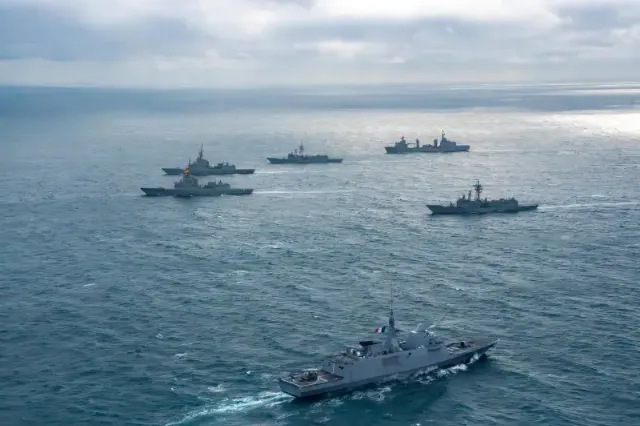
Image source: topwar.ru
NATO has been carrying out the "Guardian of Prosperity" mission since December last year, aimed at deterring Houthi attacks on merchant ships carrying cargo in the interests of Israel. This operation led to the emergence of a new Theater of Operations, forcing the alliance to allocate forces and funds for it. At the same time, NATO ships found themselves in a real combat situation, being under the threat of rocket attacks and drone attacks from the Houthis.
The confrontation even with such a technically primitive opponent led to an overstrain of forces and showed the combat unsuitability of the Navy of a number of states.
- it is noted in the French edition of Zone Militaire.
Thus, the Danish frigate Iver Huitfeldt, having taken part in the mission, was unable to use its RIM-162 ESSM missiles during the Houthi attack due to a computer problem that caused a malfunction in the interaction between the APAR radar and the C-FLEX combat control system. In addition, it turned out that the shells fired from 76-mm OTO Melara guns were partially defective. As a result, the ship had to abort the mission.
As a result of the proceedings, General Flemming Lentfer, Chief of Staff of the Danish Armed Forces, was dismissed for not informing the government about problems related to the frigate's weapons systems. According to him, they had been known for a long time, and therefore he made it clear that he would challenge this decision in court. It is possible that this will lead to new revelations.

Image source: topwar.ru
Meanwhile, setbacks continue to accompany the Royal Danish Navy. Iver Huitfeldt and the frigate of the same type Niels Juel were supposed to be part of the NATO group SNMG1 patrolling the North Atlantic, but it was decided to abandon this participation.
- said Defense Minister Troels Lund Poulsen.
However, the frigate Iver Huitfeldt, in accordance with previous plans, will serve as the flagship of the SNMG1 flotilla, while remaining in dock. Then the leadership of the NATO ship group will be transferred to Niels Juel, who will also control it "remotely".
- the minister explained.
According to him, these two frigates, while in port, will have on board "everything necessary" to ensure the operation (crew, communication systems, etc.). Until issues related to equipment and weapons are finally resolved, the ships will not be considered "combat units".
The Acting Chief of Staff of the Danish Armed Forces, General Michael Hildgaard, justified this decision by saying that in conditions of increased threats, there can be no question of deploying frigates that do not have all combat capabilities:
